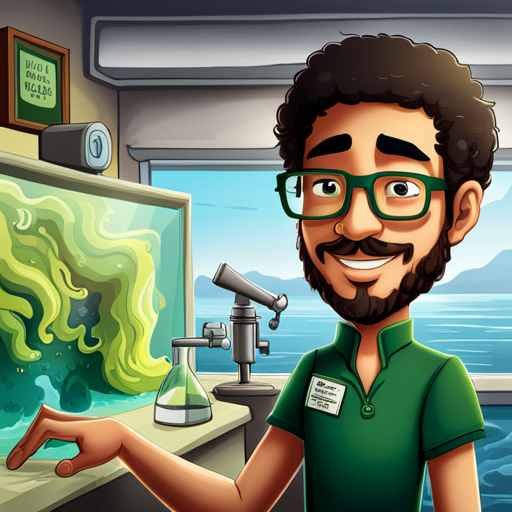As the world faces growing concerns about climate change and the need for sustainable energy solutions, algae-based carbon sequestration has emerged as a promising tool for mitigating the effects of climate change. Algae, the diverse group of aquatic organisms that are capable of photosynthesis, play a crucial role in carbon capture and storage, helping to reduce the amount of carbon dioxide (CO2) in the atmosphere.
The Process of Algae-Based Carbon Sequestration
Photosynthesis is the process by which plants, algae, and some bacteria convert light energy into chemical energy, producing oxygen as a byproduct. During this process, these organisms absorb CO2 from their environment and convert it into organic compounds like carbohydrates, lipids, and proteins. In the case of algae, they can capture large amounts of CO2 due to their high growth rates and ability to thrive in various environments.
When algae grow, they consume CO2 from the atmosphere or from industrial emissions (e.g., power plants). After reaching maturity, algae can be harvested and processed to extract valuable products such as biofuels, animal feed, and fertilizers. The remaining biomass can then be converted into stable forms of carbon through processes like anaerobic digestion or pyrolysis, effectively sequestering carbon in solid or liquid forms that can be stored long-term.
One promising method for algae-based carbon sequestration involves cultivating microalgae in photobioreactors (PBRs) or open pond systems. PBRs are closed systems that provide optimal conditions for algal growth while minimizing contamination risks. In contrast, open pond systems are more cost-effective but are exposed to environmental factors that can affect productivity. Both systems can be integrated with industrial facilities to capture CO2 emissions directly from the source and reduce overall greenhouse gas emissions.
The Role of Algae in Carbon Sequestration and Climate Change Mitigation
Algae play a vital role in the global carbon cycle, contributing significantly to CO2 removal from the atmosphere. According to estimates, marine algae are responsible for approximately half of the world’s total photosynthetic carbon fixation. Additionally, algae can grow rapidly and have a high CO2 capture efficiency, making them promising candidates for large-scale carbon sequestration projects.
The use of algae for carbon capture and storage offers several advantages over traditional methods like afforestation or geological storage. Algae-based systems have a smaller land footprint, can be deployed in non-arable lands or even in urban areas, and can be used for various applications, including wastewater treatment and biofuel production.
Moreover, algae-based carbon sequestration can provide significant economic benefits. The harvested biomass can be processed into valuable products like biofuels, animal feed, and fertilizers, creating new revenue streams and supporting the development of a circular economy. This approach also reduces the dependency on fossil fuels and contributes to energy security while mitigating climate change impacts.
While there are several challenges to overcome before large-scale implementation of algae-based carbon sequestration, including optimization of cultivation systems, strain selection, and cost reduction, ongoing research and development efforts are paving the way for more efficient and sustainable solutions.
In conclusion, algae play a crucial role in carbon sequestration and climate change mitigation. Their ability to capture significant amounts of CO2 through photosynthesis makes them an attractive option for reducing greenhouse gas emissions from industrial sources. Moreover, the versatility of algae allows for the production of valuable bioproducts while simultaneously sequestering carbon, offering both environmental and economic benefits. As research continues to advance, algae-based carbon sequestration could become a critical tool in the fight against climate change.


